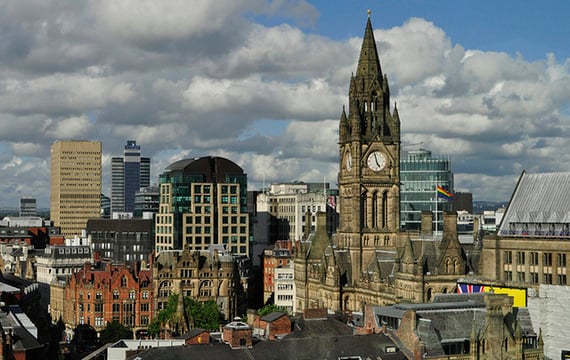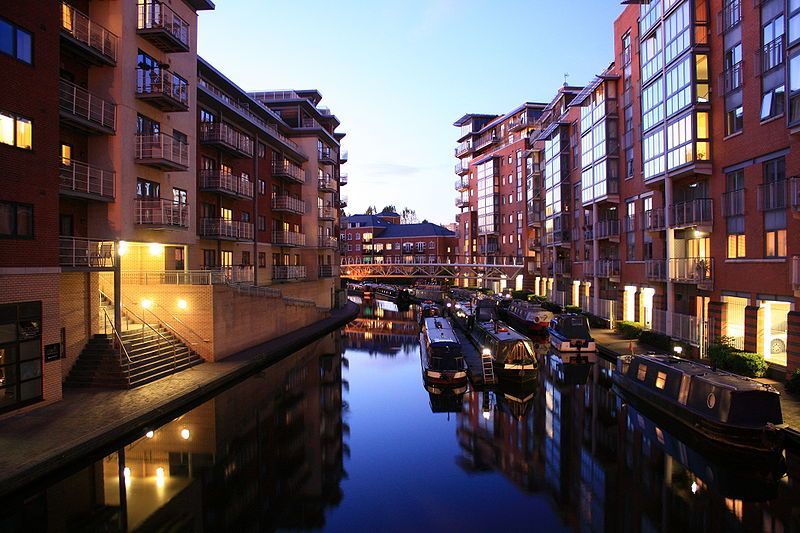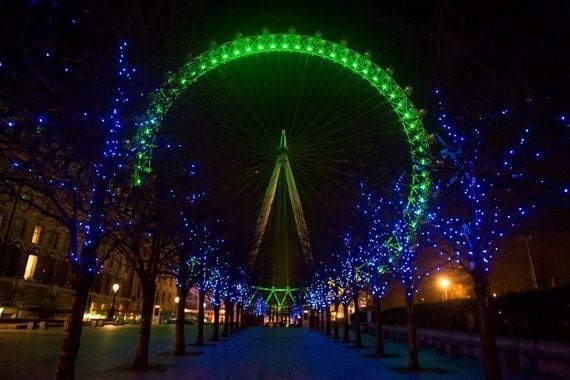With a long history of Irish emigration to the United Kingdom, it's hardly surprising that a number of English cities have more than a bit of a green tinge.
"Irish" cities are all throughout England - more than half a million people born in Ireland live in England, a higher concentration of Irish immigrants than anywhere else in the world.
In 2001, more than 630,000 Irish people lived in England, the equivalent of around 12% of the population of Ireland at the time.
From top to bottom, England has a strong Irish influence, but which English city is the most "Irish"?
London
It stands to reason that England's capital would have a large Irish population. Job prospects and the bright lights of the big city would have been attractive to the masses emigrating from economic stagnation and unemployment in Ireland in the 1950s and a long-standing direct link between Dublin Airport and London's airports would have made the city many people's first port of call.
London is home to several Irish-dominated communities, including Camden Town and Hammersmith.
London GAA is one of two teams outside of Ireland to compete in the All Ireland championships, further demonstrating the deep Irish ties to the city, while London Irish, one of the city's professional rugby clubs, gets its name from the city's Irish population.
London, however, is a melting pot and, for that reason, the Irish population is just another ethnic group in a city bubbling with ethnic minorities. For that reason, London is not truly Irish in the sense that other English cities are.
Read more: WATCH: Irish stars perform for London Irish Centre's Charity Night In
Manchester

iStock
Situated in the north-west of England, Manchester is one of the more predominantly Irish cities in the country due to its close proximity to Dublin via the Irish Sea.
Around 35% of the city's population claims Irish heritage while some of the area's most famous musical acts boast strong Irish roots.
Oasis frontmen Noel and Liam Gallagher were born to Irish parents while all four members of the Smiths, a hugely popular indie rock band from the city, claim Irish heritage.
Manchester boasts one of the UK's largest St. Patrick's Day parades as a nod to its Irish population, while local soccer club Manchester United has historically had deep ties with the Irish community and has a history of including Irish-born players in its squad.
Read more: Manchester has deep Celtic roots in its past
Birmingham

Irish people helped to build the Birmingham City canals. Jimmy Guano/Wikimedia Commons
Birmingham's Irish community has become more well-known in recent years thanks to Tommy Shelby and the Peaky Blinders, but it is one of the most Irish cities anywhere outside of Ireland.
A working-class city, Birmingham has always attracted Irish workers and labourers in search of work in a trend that dates back to the Industrial Revolution.
Irish emigrants and descendants helped to build many of the city's roads, canals, and bridges and areas like Digbeth and Hall Green are overwhelmingly Irish.
Birmingham's St. Patrick's Day parade is the largest in the UK and the third-largest in the world behind New York and Dublin.
Read more: Get to know Cillian Murphy, the Irish star of ‘Peaky Blinders’
Liverpool

Liverpool's Famine memorial
Arguably the most Irish city in England, Liverpool has a long history of Irish emigration dating back to the Irish Famine.
Liverpool is the closest English city to Ireland, which meant that thousands of people fleeing the famine in Ireland landed in the city.
By 1851, an estimated 20% of the city's population was Irish.
Liverpool, like Manchester, is situated in the north-west of England and, like Manchester, the city's biggest musical export claims Irish heritage.
All four members of the Beatles have strong Irish roots and both Paul McCartney and John Lennon were outspoken during the Troubles in Northern Ireland with McCartney writing "Give Ireland Back to the Irish" and Lennon penning "Sunday Bloody Sunday."
Ties between Ireland and Liverpool were strengthened even further in the 1980s over both area's shared resentment of then Prime Minister Margaret Thatcher, while Liverpool Football Club and Everton Football Club have deep ties with the Irish community.
Liverpool is so Irish that it is sometimes referred to as "East Dublin".
Read more: Liverpool chief dedicates club's first league title in 30 years to Sean Cox




Comments